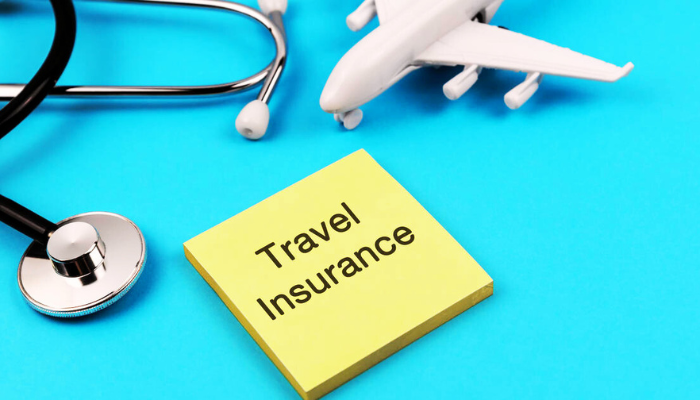Introduction
Travel insurance is a crucial aspect of planning any trip, providing coverage for unexpected events that could disrupt your travel plans. Whether you’re heading abroad for a vacation, business trip, or adventure, having the right insurance can give you peace of mind.
What is Travel Insurance?
Travel insurance is a policy designed to cover various risks associated with traveling. This may include trip cancellations, medical emergencies, lost luggage, and other travel-related issues. It can protect both domestic and international travelers, depending on the policy.
Types of Travel Insurance
- Trip Cancellation Insurance: This coverage reimburses you for prepaid travel expenses if you need to cancel your trip for covered reasons, such as illness or a family emergency.
- Medical Insurance: This is essential when traveling abroad, as it covers medical expenses incurred due to accidents or illnesses. This can include hospital stays, doctor visits, and emergency evacuations.
- Baggage Loss/Delay Insurance: This provides compensation for lost or delayed luggage, helping you replace essential items while waiting for your belongings.
- Travel Delay Insurance: This coverage helps with additional expenses incurred due to travel delays, such as accommodation and meals.
- Accidental Death and Dismemberment Insurance: This offers benefits to your beneficiaries in the event of an accident resulting in death or severe injury.
Why You Need Travel Insurance
- Medical Emergencies: Healthcare costs can be exorbitant, especially in foreign countries. Travel insurance can save you from high medical bills.
- Trip Cancellation Protection: Life is unpredictable, and having insurance can protect you from losing money on non-refundable bookings.
- Peace of Mind: Knowing you’re covered can make your travel experience more enjoyable, allowing you to focus on making memories rather than worrying about potential mishaps.
- 24/7 Assistance: Many travel insurance policies provide access to assistance hotlines, offering help with finding medical facilities or rebooking flights.
How to Choose the Right Travel Insurance
- Assess Your Needs: Consider your destination, the length of your trip, and activities planned. Different trips may require different levels of coverage.
- Compare Policies: Look at multiple insurance providers and compare the coverage, exclusions, and prices. Websites that aggregate travel insurance options can be helpful.
- Read the Fine Print: Understand what is and isn’t covered. Pay attention to exclusions and the claims process.
- Consider the Duration: For long trips, consider annual travel insurance, which may offer better value than purchasing individual policies for each trip.
- Check Reviews: Research providers and read reviews from other travelers to gauge the reliability and customer service of the insurance company.
Conclusion
Travel insurance is an essential investment for any traveler. By understanding your options and choosing the right policy, you can travel with confidence, knowing that you’re protected against the unexpected. Always take the time to do your research and ensure your travel experience is as smooth and enjoyable as possible.
Travel Insurance FAQs
Here are some frequently asked questions about travel insurance to help clarify its importance and how it works:
1. What does travel insurance cover?
Travel insurance can cover a variety of incidents, including trip cancellations, medical emergencies, lost or delayed luggage, travel delays, and accidents. Specific coverage varies by policy, so it’s essential to read the details of each plan.
2. Do I need travel insurance?
While it’s not legally required, travel insurance is highly recommended, especially for international trips where healthcare costs can be high. It provides peace of mind and financial protection against unforeseen events.
3. When should I purchase travel insurance?
It’s best to purchase travel insurance as soon as you book your trip. This ensures you are covered for cancellations or issues that may arise before your departure.
4. Can I buy travel insurance after my trip has started?
Yes, some providers offer insurance policies that can be purchased after the trip has begun, but coverage options may be limited. It’s advisable to secure insurance before your trip starts to maximize coverage.
5. What should I do if I need to make a claim?
If you need to make a claim, contact your insurance provider as soon as possible. Gather all relevant documentation, such as receipts, police reports (if applicable), and any correspondence related to your claim. Follow the claims process outlined in your policy.
6. Are pre-existing medical conditions covered?
Most travel insurance policies exclude pre-existing conditions unless you purchase a policy that specifically includes coverage for them. It’s crucial to disclose any pre-existing conditions when applying for insurance.
7. Can I cancel my travel insurance policy?
Most providers allow you to cancel your travel insurance policy, but there may be a cancellation fee or restrictions on refunds. Check the cancellation policy of your provider for specific details.
8. How much does travel insurance cost?
The cost of travel insurance varies based on factors such as your age, destination, trip duration, and coverage amount. On average, it can range from 4% to 10% of your total trip cost.
9. What if my luggage is lost or delayed?
If your luggage is lost or delayed, report it to your airline immediately and keep all documentation, including baggage claim tickets. You can then file a claim with your travel insurance provider for reimbursement of necessary items.
10. Does travel insurance cover natural disasters?
Many travel insurance policies include coverage for natural disasters, but this can vary by provider. Be sure to check the specifics of your policy to understand what is covered in the event of a natural disaster impacting your trip.







